This year’s second academic term has seen a number of key figures within the forensic field give some fascinating guest talks at the University of Lincoln (as part of the School of Psychology’s Research Seminar Series). Each speaker was invited by a member of the FCRG.
First, on 4th March, Dr. Miranda Horvath (Middlesex University), invited by Dr. Lynsey Gozna, gave an interesting talk entitled “Blurred lines: Exploring the impacts of lads mags and pornography on attitudes and behaviour”. In this talk, Dr. Horvath discussed findings from some of her most recent studies. In one interesting study, participants were presented with descriptions of women taken from: 1) lads’ mags; and 2) comments made by convicted rapists. However, participants were blind to the source of the description. The findings showed that participants could not distinguish the source of the quotes. Moreover, male participants identified more with the descriptions made by rapists than lad mags, possibly explained by the fact that lads mag quotes were rated as being more derogatory. Dr. Horvath suggested that these results support the hypothesis that lads mags reinforce and normalise hostile forms of sexism. In the second half of the presentation, Dr. Horvath outlined some of the core findings from an ongoing project looking into the effects that pornography can have on children and young people’s values, attitudes, beliefs, and behaviour.
A week later, on 11th March, Prof. Theresa Gannon (University of Kent), invited by Dr. Ross Bartels, gave a talk entitled “Adult Deliberate Firesetting: Developments in Theory, Research, and Practice”. In this presentation, Prof. Gannon gave an overview of the theoretical and empirical findings that have emanated from a major project on adult firesetters; a relatively neglected forensic population. Prof. Gannon described the recent Multi-Trajectory Theory of Adult Firesetting (M-TTAF) along with research findings on the psychological characteristics and mental health problems of fire-setters. Some of the key findings were that firesetters have higher levels of anger-related cognitions, interest in serious fires, identification with fire, and lower levels of fire safety awareness than non-firesetters. Also, Prof. Gannon and her team found Borderline Personality traits (e.g., poor impulse control, interpersonal issues) to be a strong discriminator between firesetters and controls. Finally, Prof. Gannon presented new and promising findings on the efficacy of the “The Firesetting Intervention Programme for Prisoners”.
Last but not least, on 22nd April, Dr. Tamara Turner-Moore (Leeds Beckett University) and Dr. Mitch Waterman (University of Leeds), invited by Prof. Todd Hogue, presented a talk entitled “They fear that they’re gonna be viewed as a massive deviant fantasy and penis”: Research on sexual offenders’ sexual thoughts and practitioners’ reflections on the implications for treatment. In this presentation, Dr. Turner-Moore and Dr. Waterman provided an overview of the ‘Sexual Thoughts Project’ (STP); an extensive international survey examining the sexual thoughts and fantasies of community men (n = 6000+) and men convicted of sexual offences (n = 93). The core findings from the STP were presented, particularly those comparing the content of sexual thoughts in non-offenders and sexual offenders. Also, the two researchers gave an overview of the work produced by a ‘think tank’ (comprised of the STP researchers, the Chair of the Practice Committee of NOTA, key UK policy-makers, and treatment providers from prison, probation, mental health, and community services) developed to explore the practical implications of the initial STP findings. The initial work of the think tank was thought-provoking and showcased ways in which this important research can be implemented in practice.
Each talk provided a fascinating insight into some of the core topics and issues within Forensic Psychology at the moment, and we are extremely grateful to each of the speakers for taking the time to visit and share their work with our department.
The FCRG team are now planning the guest speakers for next semester (Autumn 2015), with the aim to make them as interesting and varied as this semester (and year) has been.
